Food Intolerance means, simply, not being able to tolerate a particular food. This is different to Food Allergy – Food Allergy is the serious, life threatening, condition where people have a nut, or strawberry allergy, for example. Food Intolerance develops when you have too much of a food and too often and your body just gets to the point where it can’t cope with that food any longer. Food Intolerance can also make a person feel horribly unwell. You are most likely to be intolerant to anything you have daily and feel you couldn’t live without. [Reference i]
Early Literature
Here are some examples of the passages that Zoë discovered during her research into Food Intolerance, where doctors and researchers detailed their patient case notes and findings from studying the condition:
“Specific allergic adaptation to foods and chemicals is an addiction as devastating as addiction to tobacco or drugs. In my opinion, only heroin or morphine addiction are more potent and destructive than severe food addiction, which I would put on a par with alcoholism.”
Dr Richard Mackarness Not all in the mind.
“Bread is another good example of an addictive allergy. Some individuals just cannot go without bread, even for a day – toast for breakfast, sandwiches for lunch, bread for dinner. The standard reaction to the suggestion of ‘no more bread’ is the statement ‘what is there left to eat?’. This type of person can quite easily consume up to one loaf of bread a day and it is usual to find them consuming half a loaf.”
“These addictive foods are always over-consumed and at frequent intervals. If you miss eating them you will start to feel bad. When you miss having your regular fix you start to have withdrawal symptoms just like a drug addict. Your body starts rebelling against the removal of the food on which it has come to depend.”
Robert Buist Food Intolerance.
“…we reach a stage of addiction : the patient craves the food and wants to eat it often, even to binge the food. The reason is that by this stage, ironically, the patient gets the symptoms only if he or she doesn’t eat the food.”
Dr Keith Mumby The Allergy Handbook.
“Food addiction differs only in degree of severity from a drug addiction.”
“The American humorist Don Marquis once said that ‘ours is a world where people don’t know what they want and are willing to go through hell to get it.’ This is a good description of the food addict, who doesn’t know the exact nature of the food he craves, but is willing to eat compulsively, to the point of addiction, in order to get it.”
In reference to a clinic patient: “I’ve reached the point where I am afraid to eat any longer. Once I start eating, I feel as if I simply cannot stop.”
Discussing a food addict: “He may wake up in the middle of the night and help himself to more food. Sometimes family members will joke that he seems to be addicted to sweets, cheese, steak, or whatever is his favourite treat. If only they knew how right they are!”
Theron Randolph & Ralph Moss Allergies – Your Hidden Enemy.
“Millions of men, women and children suffer from the addictive form of food allergy… Obese people are living testaments to the strength of food addiction… The foods to which the compulsive eater has an addictive allergy are never skipped, and eating for the relief of food-related withdrawal symptoms may become the obese person’s interest in life… Progressive overweight develops as the advancing stage of allergic food addiction requires increasing doses of the specific food(s) to satisfy the craving… the compulsive eater is not overwhelmed with emotional problems or an unfulfilled need for love that requires oral gratification. He is a chronic foodaholic with a serious but easily diagnosable nonpsychological ailment.”
Dr Marshall Mandell & Lynne Scanlon 5-Day Allergy Relief System.
“Food reactions are the single most common cause of the cravings that destroy diets. These cravings, which are far harder to resist than mere hunger, are similar to the physical urges experienced by alcoholics or cigarette smokers.”
Elson M Haas MD & Cameron Stauth The False Fat Diet.
Medical Journals
Zoë is not aware of anyone who has researched these conditions and connected them in the way that she has – certainly not in the 1990s as she did. Research into each individual condition and their impact on eating is becoming more prevalent. Here are two articles about Food Intolerance where “sugar addiction”, “food craving, particularly for carbohydrates, chocolate and sugar”, “impulsive eating” and “cravings for food” and the rationale for this are documented:
“The concept of “sugar addiction” has been bandied about for many years. Clinical accounts of “sugar addiction” have been the topic of many best-selling books and the focus for popular diet programs (Appleton, 1996, DesMaisons, 2001, Katherine, 1996, Rufus, 2004). In these accounts, people describe symptoms of withdrawal when they deprive themselves of sugar-rich foods. They also describe food craving, particularly for carbohydrates, chocolate, and sugar, which can trigger relapse and impulsive eating. This leads to a vicious cycle of self-medication with sweet foods that may result in obesity or an eating disorder.” [ii]
This journal article adopts a very similar model of food addiction (withdrawal, craving, sensitization) to the one that Zoë developed in Why do you overeat? When all you want is to be slim.
“Latent food intolerance or LFI was first described by an American physician Herbert Rinkel back in the 1930s. Although ancient physicians strongly suspected the existence of a link between chronic disease and diet, Herbert Rinkel was the first contemporary physician who confirmed this causal link. Dr. Rinkel discovered that with prolonged consumption of large quantities of certain foods, for example, chicken eggs, a human can develop adverse health conditions. Typically, the affected person does not notice any connection between the food item in question and the symptoms of his or her illness or their exacerbation. Moreover, frequently the person will develop cravings for the food item in question, since the consumption of this food item results in a temporary relief of the symptoms.” [iii]
More Information
Stop Counting Calories & Start Losing Weight and/or Why Do You Overeat? When all you want is to be slim will explain: What is Food Intolerance? What causes Food Intolerance? How do you know if you have Food Intolerance? What is the connection between Food Intolerance and food cravings? How can you treat Food Intolerance?
For more information, take a look at this short video:
Further reading
“Food Intolerance – What it is and how to cope with it” by Robert Buist (1984)
“5-Day Allergy Relief System” by Dr Marshall Mandell and Lynne Scanlon (1979)
“The Allergy Hanbdook” by Dr Keith Mumby (1988)
“Allergies – Your Hidden Enemy?” by Theron Randolph MD and Ralph W.Moss PhD (1981)
“Not all in the Mind” by Dr Richard Mackarness (1976)
“The False Fat Diet” by Elson M Haas MD and Cameron Stauth (2001)
“The Complete Guide to Food Allergy and Intolerance” by Dr Jonathan Brostoff and Linda Gamlin (1989)



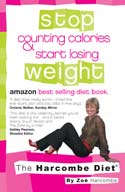
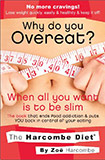
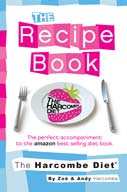
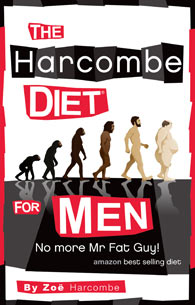
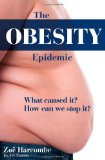
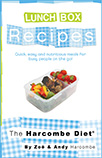
POST A COMMENT.